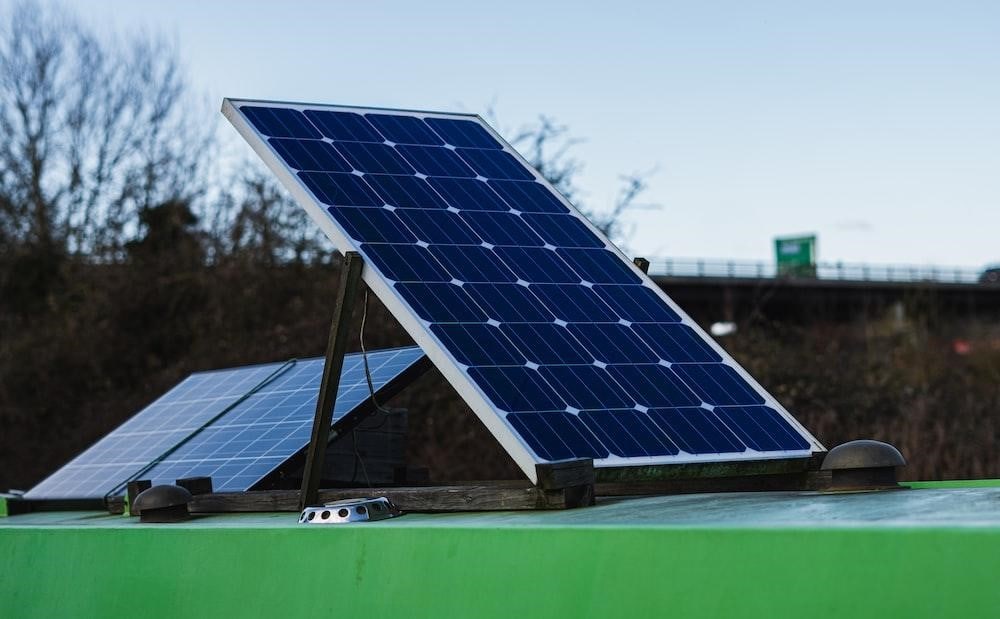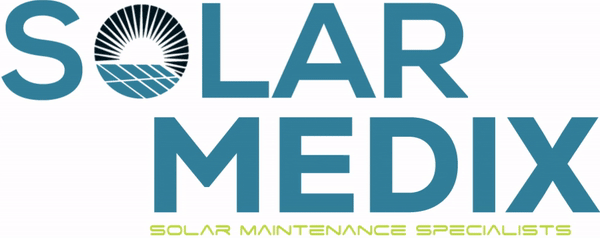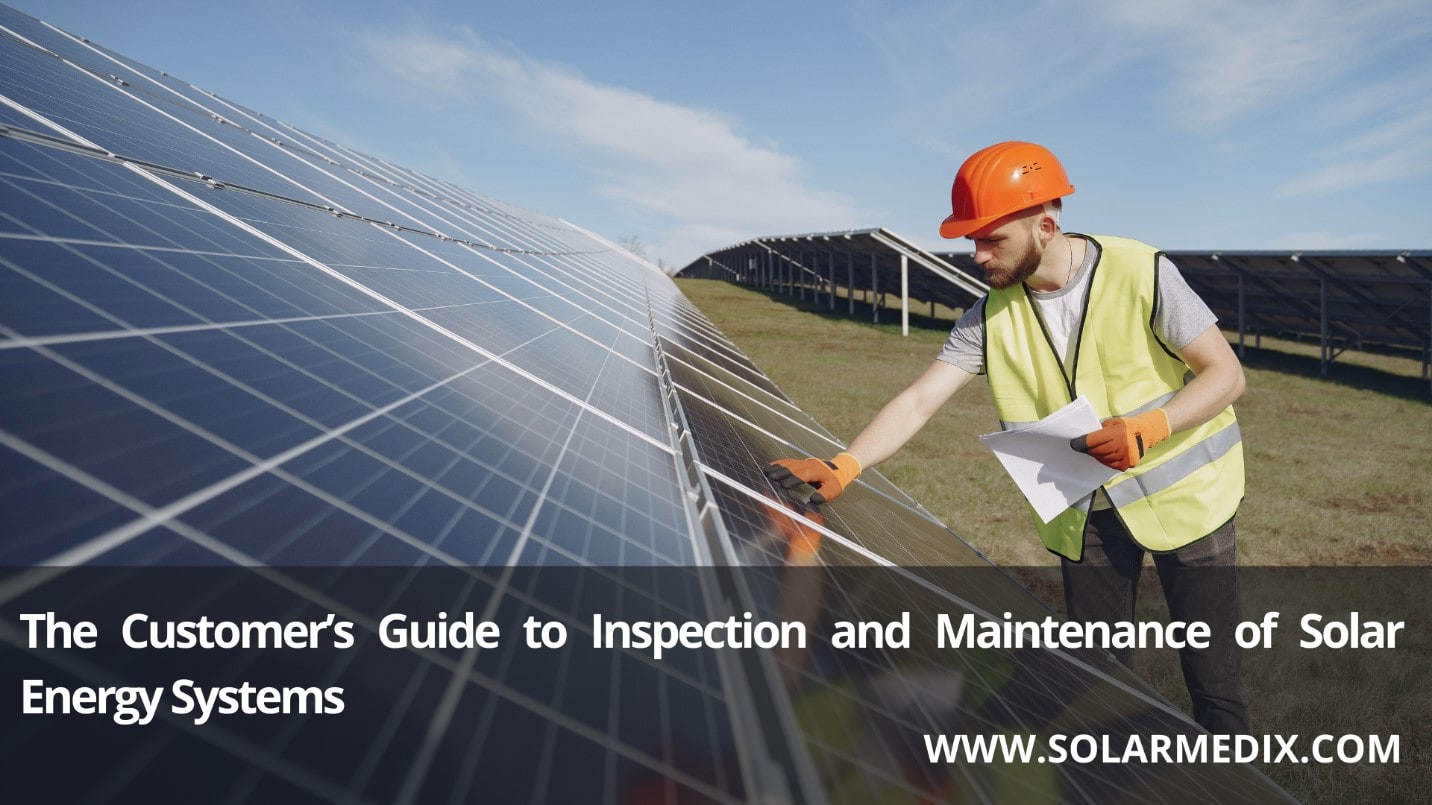You can see it when you drive around New Jersey. People are going solar. That makes sense, as solar power is inherently good for the environment and a smart investment. That can be used for rainwater pumping systems, swimming pools, and many other applications where there is direct exposure to the sun. Just like any technology:
You must be aware of proper solar panel maintenance and inspection practices to get the most out of your system. Unfortunately, “maintenance” and “inspection” are often conflated.
Therefore this guide will guide you through the process, telling you what you should be checking and how often and why. Read on to learn how you can get ensured your solar energy performance.
Why Is the Performance of Solar Energy Systems Critical?
The performance of a solar energy system is vital for many reasons.
The first reason is that it helps ensure you get the most from your investment. You have to consider the cost of installing a solar energy system and how much money it will save you in the long run. By ensuring that your system performs well, you can be sure that it will pay itself off quickly and continue saving you money over time.
Another important reason for performance is that it affects how much energy you get from your system. If you have a low-performing system, then it will not be able to produce as much power as possible. This means you must find ways to improve its performance to get more out of it with less effort.
The performance also impacts how durable your system is going to be over time as well. A well-designed and constructed system should last for many years in New Jersey and surrounding regions before needing any maintenance or repairs done for it to continue working correctly for an extended period without any problems whatsoever occurring during this time frame at all either, which makes things even more accessible when compared to other methods like burning fossil fuels or relying on other sources of energy instead which tend to be much more expensive than solar panels.
What Maintenance Should You Perform on Your Solar PV System?
Module Cleaning
One of your solar power system’s most important maintenance tasks is cleaning the modules. The best way to do this is with compressed air or a vacuum cleaner. If you notice dirt or grime on the surface of your panels, do not use any chemicals or abrasive materials to clean them off because these can damage the surface of the panels and reduce their efficiency. If you have any questions about cleaning your solar panels, contact a professional in New Jersey who can advise you on how best to clean them.
Curve Tracing and IR Thermography
These two methods can be used to determine if there are any issues with your solar panels or inverters. Curve tracing is a relatively simple process that involves measuring your panels’ output voltage and current using a voltmeter and ammeter, respectively. You then plot these values against time and create a graph called the “voltage curve” or “current curve,” depending on what you measure.
Tools are available to simplify this process to compare standard operating conditions to current conditions to determine the functionality of the solar module. These tools are not readily available to the general consumer, however specialized solar service providers will have these tools on hand.
The IR thermography method involves using infrared cameras to detect overheating, thermal damage, and damaged cells at various locations on your panels. This can be done by simply pointing the camera at different parts of each panel while keeping them in place. The temperature difference between these points indicates any problems with any given panel or if they are working correctly.
Baseplate Inspection

The baseplate is the primary support for your solar panels. It will likely be an essential part of your system, and its condition can significantly affect the performance of your system. The best way to check the condition of your baseplate is to look at it from above. If there are dents or holes in the baseplate, it is time for a new one. If you see any corrosion or rust on the surface of your baseplate, then it is time to clean it off with a wire brush attachment on an angle grinder or similar tool.
Inspecting Wiring
Periodic inspections of wiring are one of the most important maintenance steps you should take on your solar array. Some wiring failures occur within the first five years after installation. Inspections ensure that all wiring is intact and safe from corrosion or other damage. Wires should be checked for fraying or loose connections, which can cause short circuits or other problems with your system’s electrical components. If any issues are found during an inspection, they should be repaired as soon as possible to avoid an electrical fire later on down the road.
Examining Battery Status
The batteries in a solar PV system store energy from the solar panels during the day so that they can be used at night and on cloudy days. Over time, batteries lose their ability to hold a charge. This means you need to check their status periodically to know when they need to be replaced or repaired. You can do this by checking each battery’s voltage and current drawn with a voltmeter or ammeter. If one of your batteries has lost its capacity thoroughly, consider replacing it with an identical model or upgrading to lithium-ion batteries for better performance and longevity.
Inverter Maintenance
Your inverter converts the DC power from your solar panels into AC power that you can use in your home or business. The inverter should be inspected and cleaned yearly and more frequently if you have dust or dirt buildup. The following are common causes of damage to inverters:
Inverter Overheating: Insufficient airflow around the inverter can cause overheating, leading to smoke and other damage. This can be remedied by ensuring good air circulation around your inverter and no obstruction to the flow of air around it, such as curtains.
Overloading: A large load on an overloaded circuit could cause overheating, which may also result in smoke damage to other parts of your home as well as damage to your solar panels themselves.
Short-Circuiting: Short-circuiting occurs when two or more wires come into contact, causing a current leak and potentially damaging your equipment. To prevent this from happening, always use high-quality cables that are long enough so that they cannot be easily damaged during installation or maintenance.
Checking for Signs of Pest Infestation

Pests are a common problem for solar panels in New Jersey and one that can be difficult to find. It is not uncommon to see small holes in the glass of solar panels, which usually indicate that a bird or other small animal has made a nest inside the panel. However, if you notice larger holes or cracks in your solar panels, this may signify a more severe problem with pests.
You should always look out for these signs when maintaining your system and inspect them regularly to ensure any damage can be repaired as soon as possible. If you notice any symptoms of pest infestation in your solar panels, it is essential to check them regularly so that they do not get worse and cause more problems later on.
Remote Monitoring and Diagnosis
One of the essential tasks is remote monitoring and diagnosing your solar PV system. Doing so can ensure that all the components are working correctly and identify any problems before they develop into significant issues. Remote monitoring systems allow you to monitor your system from a central location using an internet connection or cellular network connection. This will enable you to keep track of your power generation levels and identify any issues with your installation without having to go onsite every time there is a problem or issue with your system. In addition, it also helps you ensure that your solar panels are not producing too much electricity during certain times of day or night, which could cause damage to them in the long run.
How Often Should You Perform Solar PV System Inspections?
In general, most experts recommend that homeowners inspect their solar PV systems every two years. This is especially important if you live in an area like New Jersey with harsh weather conditions such as high winds or during the winter when snow can accumulate on the panels, creating a hazard for workers who may need to climb onto them during repairs.
Some homeowners in New Jersey conduct more frequent inspections if they notice any problems with their systems — such as leaks or other damage — and want to ensure they are repaired before it becomes more serious. However, remember that frequent inspections do not necessarily mean spending more money; some insurance companies will even reimburse homeowners for these costs when they file an insurance claim due to damage caused by storms or other natural disasters.
While you are at it, do not forget to review your solar energy system installation and maintenance agreements. These agreements provide essential information about how the solar energy system will be serviced, who will perform the maintenance, and what parts are covered by the warranty. They are an essential part of ensuring that your solar energy system works for you for many years.
Key Takeaway
Overall, our entire walkthrough will tell you how to identify when some maintenance action should occur and what that action might involve. It will help you understand how certain maintenance activities impact both the performance and longevity of your solar energy investment, and it will help you become proactive in these maintenance activities so that overall savings can be maximized throughout the life of your solar energy system.
Feel free to reach out to us if you have any questions. Or, if you like, we can give you a no-obligation quote on your project. Call us at 732-785-4814 or book a consultation online. And we’ll get in touch within 24 hours.













